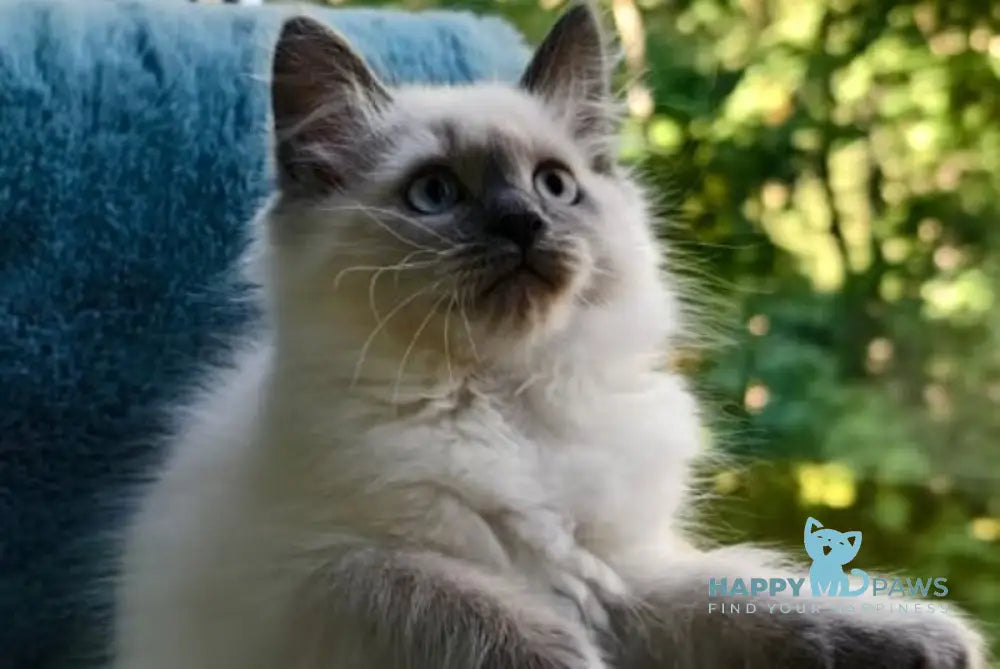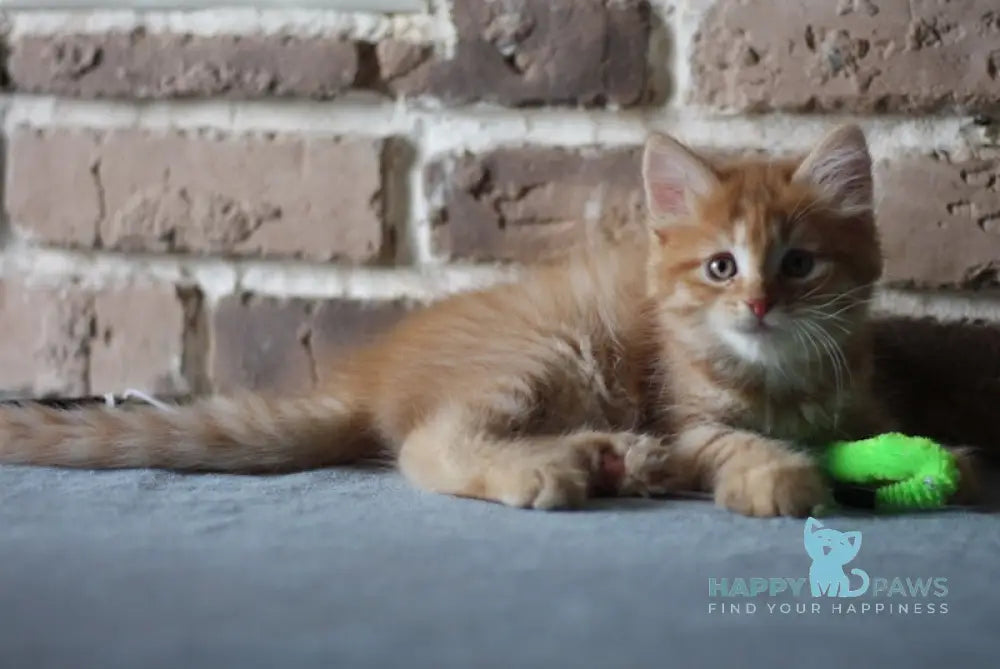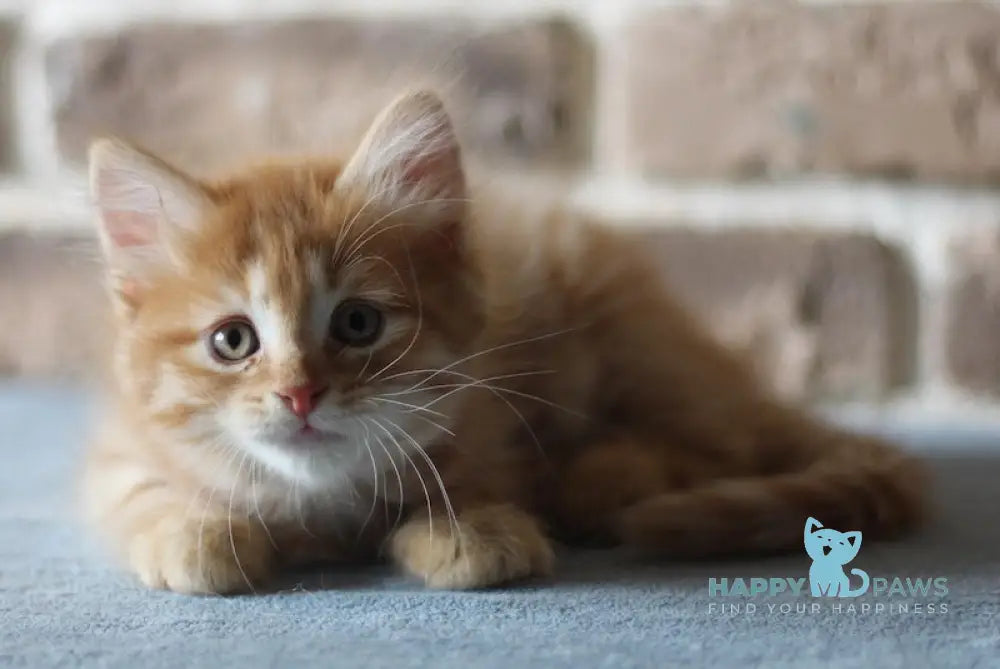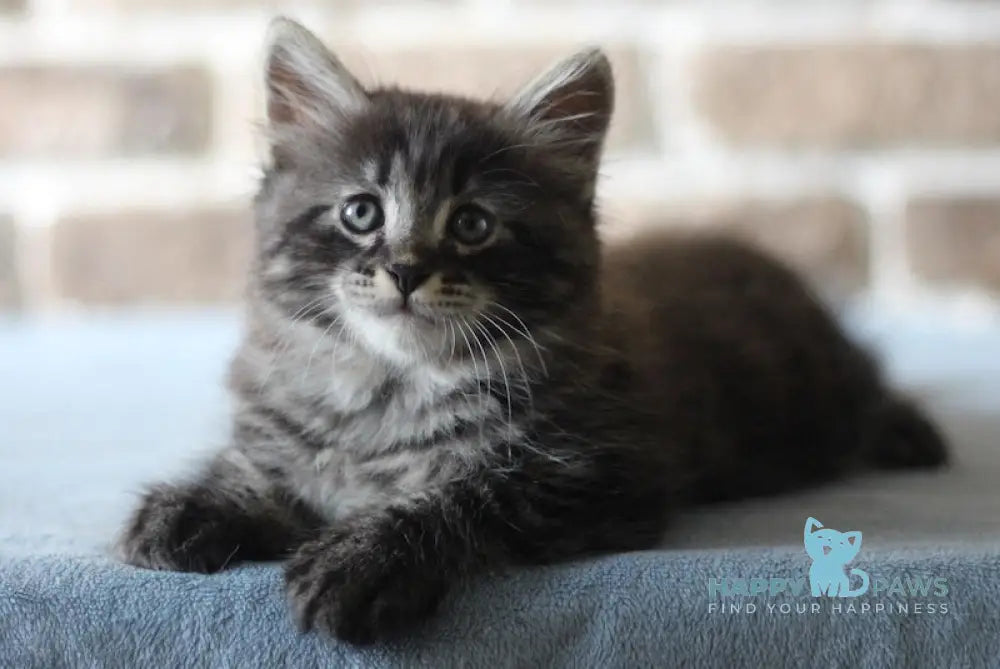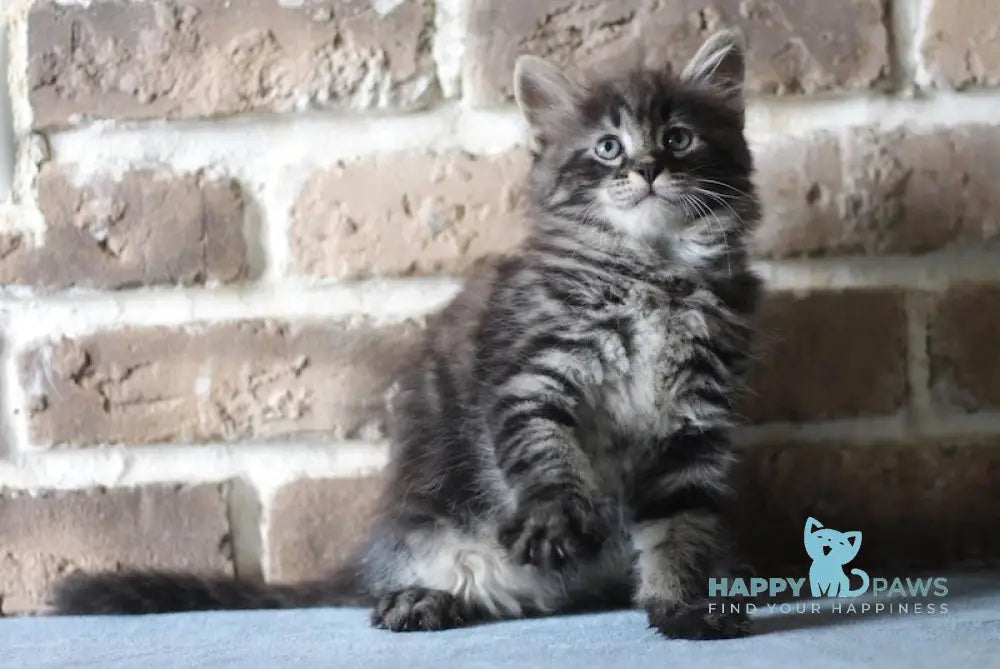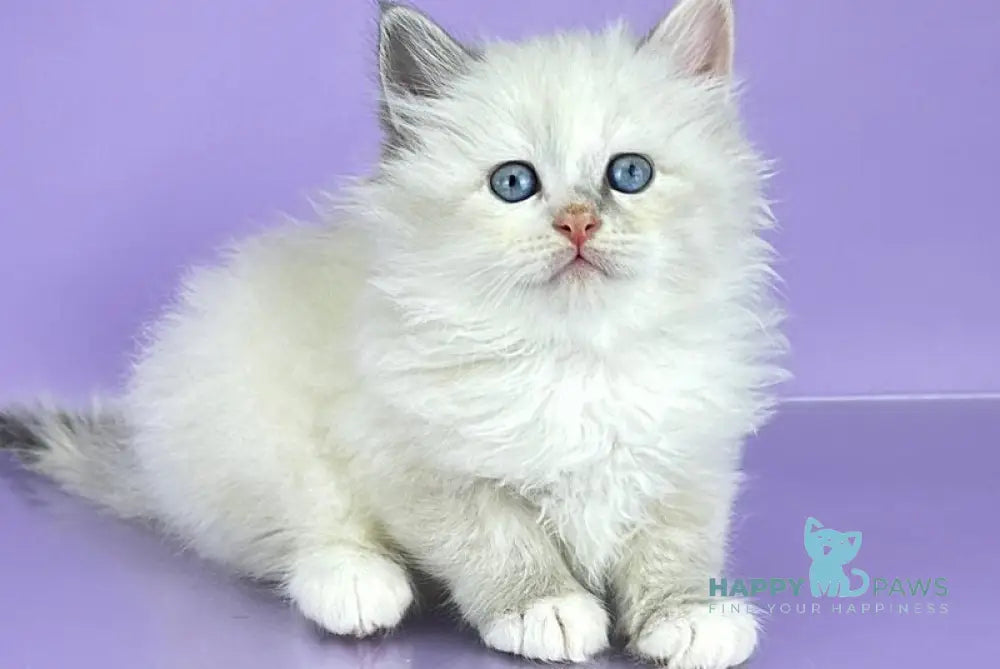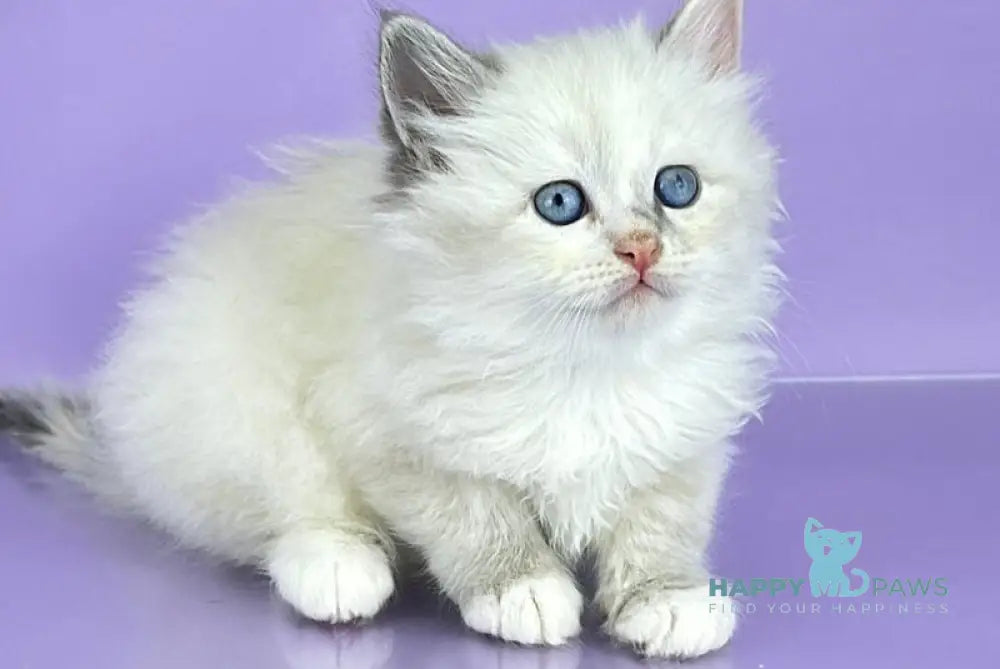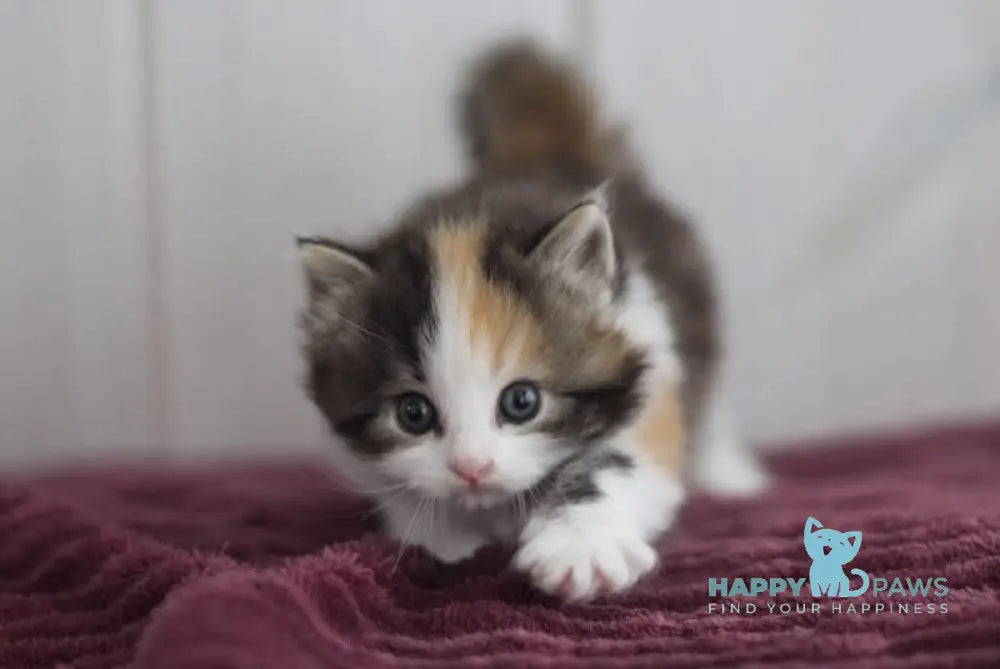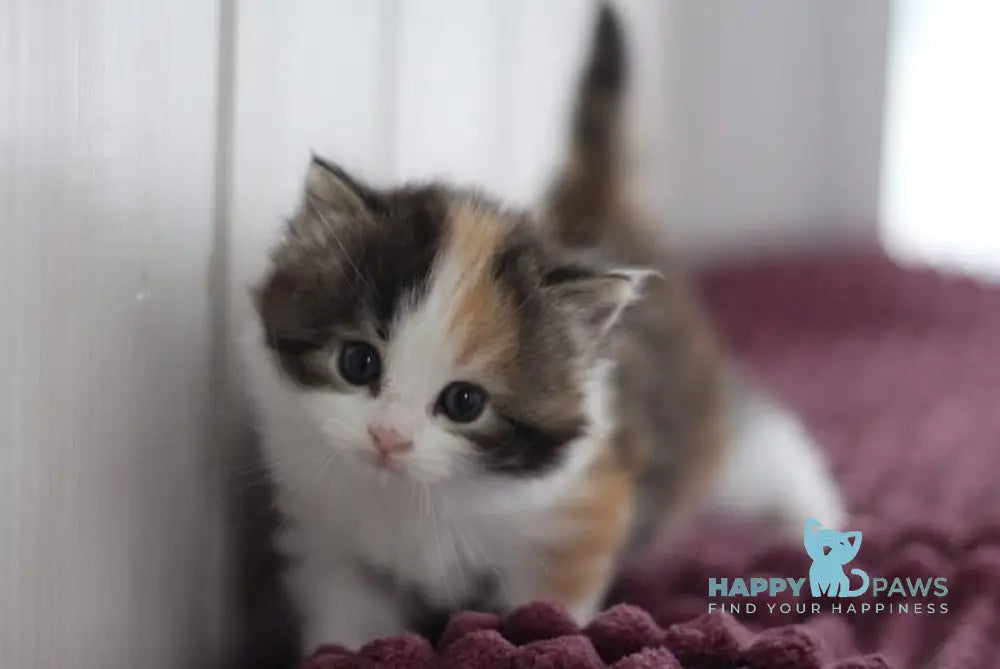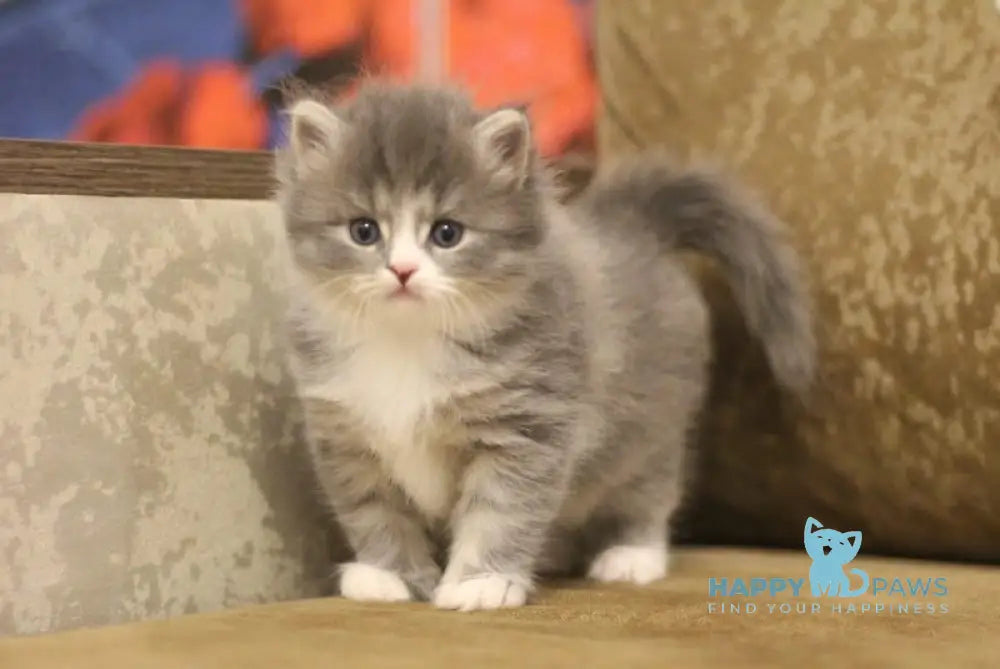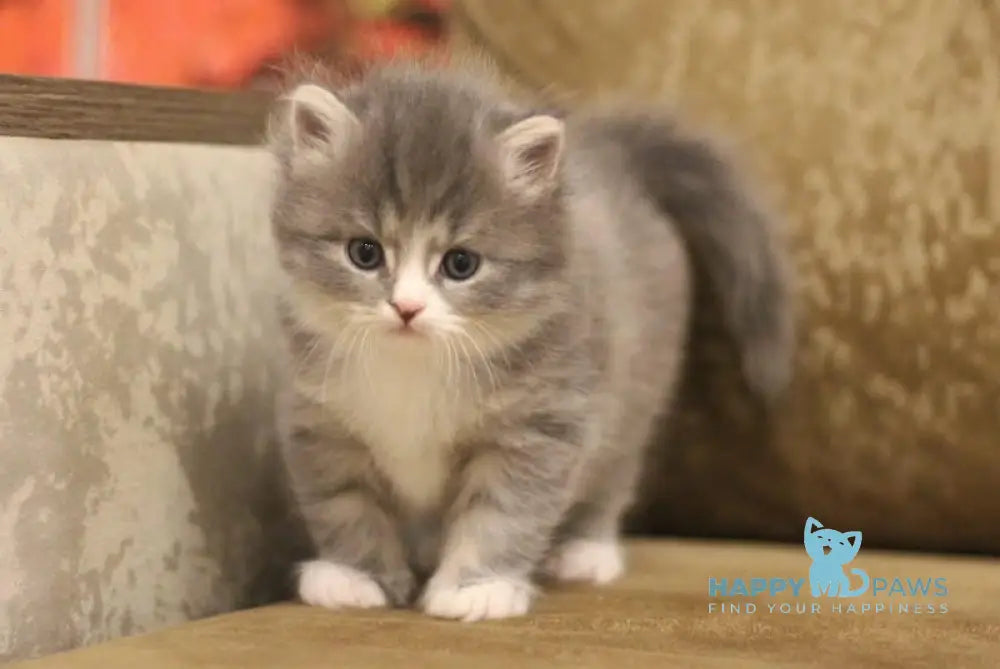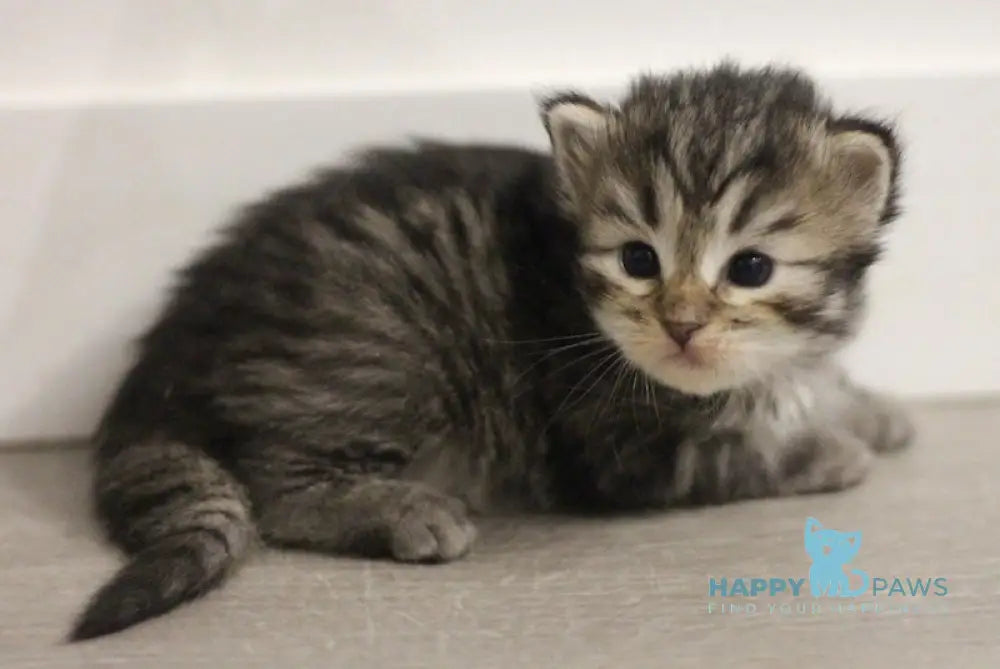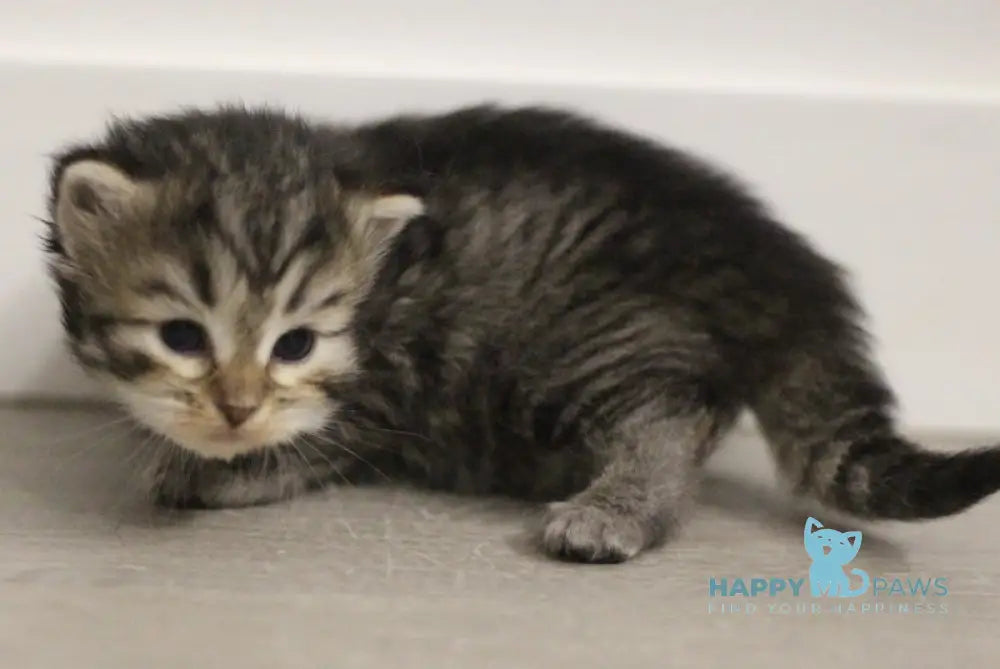Collections
-
- Abyssinian
- Balinese
- Bambino
- Bengal
- British Shorthair
- British Longhair
- Burmese
- Cornish Rex
- Chausie
- Devon Rex
- Egyptian Mau
- Elf
- Exotic
- Kurilian Bobtail
- Lykoi
- Maine Coon
- Munchkin
- Oriental Shorthair
- Persian
- Ragdoll
- Russian Blue
- Savannah
- Scottish Fold
- Scottish Straight
- Selkirk Rex
- Siamese
- Siberian
- Somali
- Sphynx
- Toyger

Siberian
41 products
Showing 1 - 24 of 41 products
Siberian Forest: Hypoallergenicity and Royal Appearance
Siberian cats have a strong sense of loyalty to their inner circle and enjoy socializing. This clever but playful breed will show love and enjoyment to their human family. The Siberian cat breed makes wonderful additions to any home and is simple to train with the right attitude and patience.
Getting Started with Siberian Forest
Siberian cats have been mentioned since the year 1000 AD. Farmers in the Siberian forest used this native Russian breed, which was bred to survive harsh climates, to control rodents. Additionally, Russian families adored them as house cats and commended them for their devotion and affectionate natures.
Three longhaired breeds, including Siberians, were featured in the first cat show held in London in 1871. In Russia, the cat craze had taken off by the 1980s, and people started documenting the breed. The Siberian breeding program in Russia officially began in 1987 with the first cat show in Leningrad.
|
Weight |
Size |
Lifespan |
Breed Group |
|
15-20 lb |
Large |
10-18 yr |
Western |
Personality and Temperament
These cats prefer to be in your presence. Siberian cat owners frequently lament their pet's propensity to follow them around the house in an attempt to get their attention. Even though Siberian cats love to be petted and cuddled, they typically play independently and aren't needy.
Male Siberian cats, according to pet parents, are more affectionate than females, which they claim behave a bit more distantly. After settling into their new home, a female Siberian cat will typically cuddle with their pet parents at their own pace.
Behavioral insights on Siberian cat personality:
-
Chatty behavior: Siberian cats enjoy having conversations with their parents, despite not being as talkative as Siamese or orange tabby cats. When they're content, they often purr.
-
Belongs to playful cat breeds: If given stimulating toys or scratching posts, their youthful antics can be difficult for first-time pet owners to handle, but they are typically controllable.
-
Adaptability: Siberians typically have a high threshold for noise and strangers, so they are not bothered by other pets, kids, or other family members. They are also an excellent choice for people who move around a lot or live in apartments because of their resilience.
-
Boldness: This inquisitive, brave cat is not a "scaredy cat." Siberian cats don't usually avoid strangers. The majority of Siberian cats are gregarious animals that love the company of their humans, but they can also tolerate being left alone all day.
Their Distinct Physical Traits
The head of a Siberian has rounded corners and a wedge shape. They have rounded, medium-sized ears with base-covering furnishings. These cats have round, medium-sized eyes that are expressive and alert. They have strong, muscular bodies.
Siberians' triple coat is thick and water-resistant. They have a full ruff around the collar and moderately long hair. Although their coat is not wavy overall, thick curls may form on their belly and britches. Siberians can have any combination of coat colors and patterns.
Exercising Your Siberian
Siberian cat health depends heavily on training, which has several advantages for both the cat and the owner. Here are some reasons why your Siberian needs to go to school:
-
Mental Stimulation: Schooling stimulates the mind of Siberian cats, who are incredibly bright. Playing school sports keeps them active and lowers the likelihood of behavioral issues.
-
Behavioral Modification: Through training, you may cope with negative behaviors and swap them out for constructive ones. Regular schooling helps avoid problems like excessive meowing or clawing of furniture.
Frequency: To keep your cat interested, try to schedule short, daily schooling sessions. In most cases, five to ten minutes per session is enough to avoid weariness.
Throughout educational sessions, remain calm and patient. Take a break and try again later if your cat appears uninterested or passes out.
Consistency: For education to be effective, consistency is essential. To promote good behavior, use the same cues and rewards every time.
Grooming Requirements
Siberians have a thick triple coat, although they don't shed much. To avoid tangles, brushing once or twice a week is typically sufficient. These cats do, however, molt twice a year. They need to be brushed every day during these times to get rid of excess fur and avoid matting.
Regular nail trimming is also essential because long nails are more likely to catch on objects and tear or break. Additionally, your cat's paw pads may get infected or painful due to overgrown nails. Apart from trimming, giving them a scratching post will help maintain healthy nails and satiate their natural desire to scratch.
Last but not least, maintaining good oral health is crucial to any cat's care. The earlier you begin a regimen that involves brushing your Siberian's teeth at home, the better. For examinations and expert cleanings, they should also visit a veterinarian on a regular basis.
Raising and Socializing a Siberian Forest
A self-assured and amiable Siberian kitten requires early socialization. A conscientious breeder makes certain that kittens are exposed to a variety of sounds, settings, and human contact from a young age.
A kitten that has been socialized will:
-
Feel at ease handling and interacting with people
-
more readily adjust to a new home setting
-
Reduce your worry and dread in unfamiliar circumstances.
If you're looking for Siberian kittens for sale in the United States, pick a company like HappyPaws that places a high value on socialization through consistent playtime, exposure to domestic settings, and interactions with other animals.
Is Siberian Forest the Right Fit for You?
Siberians, like most indoor cats, enjoy the stimulation of being outside. However, keep in mind that because of their thick coats, Siberians are suited for cold climates. In order to maintain your cat's emotional and physical well-being, if you choose to keep them indoors, make sure they have safe access to the outdoors by creating an enclosed cat-friendly garden.
Potential owners should consider the hypoallergenic cat's need for regular interaction to avoid under-stimulation, seasonal shedding cycles, and grooming requirements. The Siberian can be considered a good choice for people with mild allergy sensitivity due to its decreased production of the Fel d 1 glycoprotein, although total hypoallergenicity cannot be guaranteed.
To guarantee a secure transfer into homes, your Siberian kitten up for adoption at happypawsus.com undergo vaccinations, health examinations, and socialization with kids. Find your future friend by looking through our adoption listings. You can take advantage of our dedication to ethical breeding, thorough medical care, and early socialization, which will give you the assurance that your new cat will be prepared to flourish in your home.
FAQ
1. Are Siberian Forest cats good for families with children?
Indeed, this cat for families is very tolerant and loving, which makes them great kids' friends. They may engage safely and joyfully in a family setting because of their gregarious and energetic temperament.
2. How much grooming does a Siberian require?
Because of their thick triple coat, Siberians need to be brushed frequently (ideally a few times a week) in order to reduce shedding and avoid matting. Daily grooming may be necessary to control increased hair loss during seasonal changes.
3. Are Siberian Forest cats hypoallergenic?
Compared to many other breeds, Siberians produce less of the Fel d 1 allergen, which could lessen allergic symptoms. They are not entirely hypoallergenic, though, so those who are sensitive should still use caution.
4. Can Siberians live in apartments or small spaces?
Yes, if given enough mental and physical stimulus, Siberians can adjust to living in an apartment. To satisfy their high activity and cognitive needs, interactive play, climbing frames, and everyday interaction are crucial.

